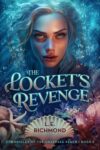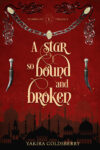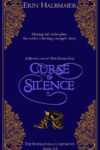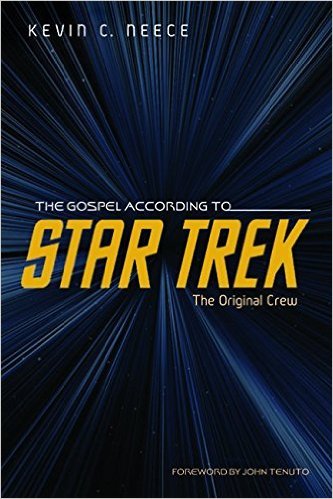Villains Should (and Shouldn’t) Be Redeemed – A Response

Image from narnia.wikia.com
I found this an interesting question, but one that is ultimately too broad. Of course redemption should be an option that is open for villains (differentiating here from the broader category of “antagonists”). But the determining factor must always be what is best for the story and makes the most sense for the characters.
Khan, for example, must be destroyed, simply because he must represent the consuming, destructive nature of vengeance and hatred. It would also make little dramatic sense for him to, at some point, say, “You know, Jim. Can I call you Jim? Jim, I’ve reconsidered. You didn’t mean to ruin my life. I’m really sorry for killing all those innocent people. I’d like to use my superior intellect and genetically enhanced strength for good instead of evil. Where do I sign up for Starfleet Academy?”
 He’s Ahab. Ahab doesn’t have a change of heart—not because we’re making a broad statement that certain people cannot be redeemed, but because he must represent the self-destructive nature of obsession.
He’s Ahab. Ahab doesn’t have a change of heart—not because we’re making a broad statement that certain people cannot be redeemed, but because he must represent the self-destructive nature of obsession.
On the other hand, I used to review films directed at kids and teens, and I was always disappointed by the trope that, since we can’t kill the villain, we must thoroughly humiliate them. It somehow seemed more cruel that, instead of the villains’ actions tragically leading to their own demise, our heroes laughed and smiled as the villains were electrocuted, drenched in muck, tortured, and reduced to whimpering masses in public view. I thought these films often missed clear opportunities to offer redemption to their villains.
And perhaps that’s what’s missing more than anything else—the offer. Heroes are so consumed with overcoming the villains that they rarely reach out a hand to offer them a way out. If the villain accepts, then our hero is lifted even higher in our estimation and illustrates grace and compassion as leading to the truest victory. If they refuse, the audience has the moral reassurance that “at least we tried” and is reminded that redemption is available.
The rejection of an offer of redemption also serves to show that the villain is committed to his or her chosen path, regardless of the consequences. Again returning to Star Trek, this is demonstrated in the final encounter between the Enterprise and Nero in the 2009 film, and more tragically in the TOS episode “Balance of Terror,” which takes the approach of suggesting that our “villain” is no more evil than we are. (This calls to mind for me Derek Webb’s song “My Enemies Are Men Like Me.”) Sometimes the most powerful stories remind us of the humanity of even our most hated foe.
Still, in mythological tradition, there is often a need for characters to be icons and archetypes, which often necessitates certain fates, so that the ideals with which those characters are aligned may be clearly shown to lead to greater good, or to destruction. So, the upshot is that a good storyteller should be aware of all these tools and of the type of story he or she wishes to tell. All of the available options are valid and all can fall flat with misapplication. In the end, the hero of every story is good narrative structure.
With some minor editing, this is a post first published at Kevin C. Neece’s blog.
– – – – – –

Kevin C. Neece is an author and speaker on media, the arts, and pop culture from a Christian worldview perspective. A former professor, Kevin holds a BAS in Communication and Philosophy and an MLA in Fine Arts. He lives with his wife and son in Fort Worth, Texas.
His latest book is The Gospel According To Star Trek.




































Yes. Good points here. There is something to be said about the villain who is an archetype or who embodies an idea that should be destroyed. And I agree, too, that whatever happens to the villain must serve the story above all.
Thanks, Lisa! Really, everything must serve the story above all. The villain (if there is one) is just one of many aspects of a narrative that must be held to that standard.
I think the thing that struck me most is that the offer of redemption is vital, but not necessarily redemption. I thought that was more true to life anyway, so it seems like the perfect answer to the dilemma.
Becky
You’re right that it’s more true to life, Becky. I rewrote a church sketch once that was a metaphor for a Christian leading another person to faith in Christ. I liked the metaphor they used, but it was done badly, so I restructured the whole thing so the Christian made a much more compelling and realistic case for faith. Then, just to rebel even further against the churchiness of the thing, I had the person decline the metaphorical Christian’s offer. It was a proud moment for me as a writer and I think helped deliver the message that, even when we share the gospel well, people aren’t always converted. BUT it’s still worth telling the story well and as accurately as we can. A hero who offers a villain redemption but is declined is a similar demonstration of faithfulness against all odds.
Sometimes it can be vital. Gandalf giving Saruman one last chance after the ents defeated him does in a way serve to show how far Saruman had fallen from what he was. On the other hand, such an offer was never made to Sauron or any of the black riders, at least in the LotR stories, though it might have been made some time before they went so far that they couldn’t be brought back.
Yes, Audie! Perfect example.
Thanks, Kevin, for a great post. Congrats on your book, too! It looks interesting and engaging (no pun intended. heh.)